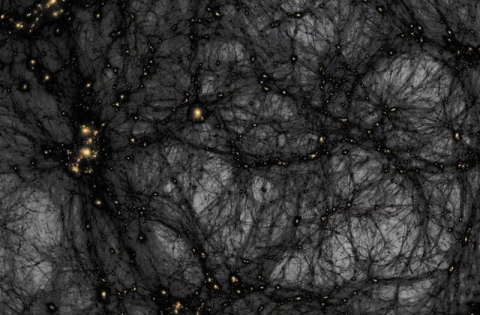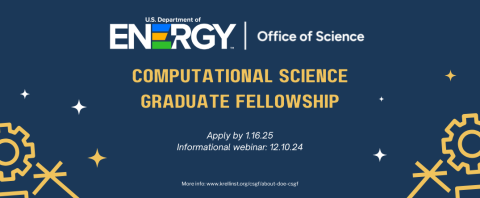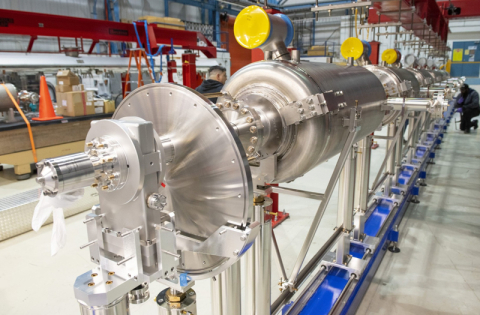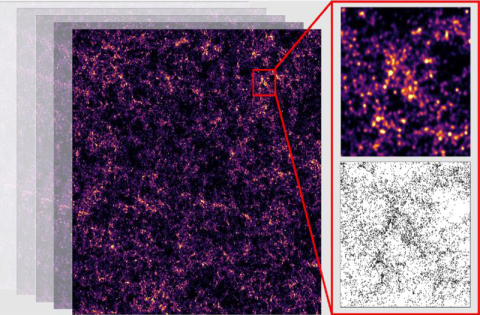RSS







Energy Department Announces $134 Million to Advance U.S. Fusion Leadership Through Targeted Research
The U.S. Department of Energy (DOE) today announced $134 million in funding for two programs designed to secure U.S. leadership in emerging fusion technologies and innovation.

DOE and Commerce Department Sign Memorandum of Understanding to Advance Safe, Secure, and Trustworthy Development and Use of AI
The U.S. Department of Energy (DOE) Office of Science has issued a Notice of Funding Opportunity (NOFO) for the Climate Resilience Centers (CRCs).

For Halloween, we're highlighting seasonally appropriate research, from dark matter to quantum entanglement.

Submissions due Jan. 16, 2025; informational webinar and Q&A Dec. 10, 2024

Fermilab-produced accelerator components prepare to power new high-energy particle beam.
This announcement builds on NP’s efforts to address technical challenges in theory, simulations, control, data acquisition, and data analysis.
Astrophysicists want to use images of far-off galaxies to understand what the universe was like in its juvenile years.
An amazing opportunity -- students and recent grads may apply to conduct research and technical projects at national laboratories
Teachers and their students may apply to collaborate on research projects at national laboratories

